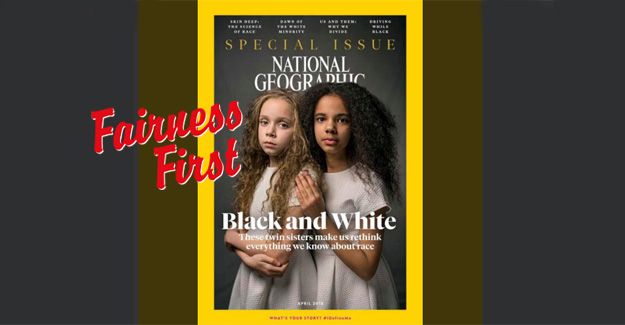#FairnessFirst: National Geographic's 'Race' issue

The media is often the ultimate judge of society, serving as gatekeepers to what makes the mainstream news or not. As a result, they’re judged harshly by society in turn, and rarely turn that critical eye on their own internal matters. So it’s refreshing when the media apologise of their own accord.
That’s why National Geographic has been making headlines of its own recently. Long the Western world’s only idea of what went on beyond their borders, it admits it did little to push its readers beyond the stereotypes ingrained in white American culture.
'National Geographic' Reckons With Its Past: 'For Decades, Our Coverage Was Racist' https://t.co/5rQcGWu9VY
— Global Fund forWomen (@GlobalFundWomen) March 18, 2018
New leadership matters. First woman EIC @susanbgoldberg confronts racist history at @NatGeo. #IDefineMe By @d_hawk https://t.co/SeCpWsvyHE
— Laura Helmuth (@laurahelmuth) March 14, 2018
Known for its iconic photography, National Geographic had long portrayed darker skinned people as uncivilised, and through its imagery, exoticised non-Western cultures for a largely white and Western audience…
“National Geographic magazine admits it used to be racist in its coverage of non-white people” https://t.co/xPaDuYaLEb pic.twitter.com/tv7sspp6Gg
— Africana (@AfricanEdToday) April 23, 2018
Not seeing South Africa
South African content made the yellow-framed evaluation cut. When Mason commented on a 1962 National Geographic story about South Africa, he said:
National Geographic’s story barely mentions any problems… There are no voices of black South Africans. That absence is as important as what is in there. The only black people are doing exotic dances… servants or workers. It’s bizarre, actually, to consider what the editors, writers, and photographers had to consciously not see.Addressing gender equality
A probe into the past exposes National Geographic’s racist content https://t.co/OpxmiSgEbx
— NBCBLK (@NBCBLK) March 19, 2018
She explains the editorial team expected there would be a fair amount of conversation around this issue, just as there was when they devoted an entire issue to ‘the gender revolution’, certainly leading the pack in that regard.
While National Geographic reports reaction to the Race issue has been ‘90% positive’, the Chicago Tribune says there’s been mixed reaction to National Geographic’s 'racist past’ admission and acknowledgement, quoting Ron Stodghill, Midwest bureau chief for Time Magazine and associate professor at the University of Missouri’s School of Journalism, as stating,
…within this push to create content that is a little edgy and also ‘sticky’ for readers, that revisionism is trendy now, and you can start to see that where folks are second-guessing their own coverage and I guess there’s valour in that, but it does raise other questions.Responsibility in reporting on real lives
Stodghill calls it “the most profound recognition of omission about a people,” but adds they won’t get any pats on the back for addressing this, as “telling true stories about all kinds of people, without filters or biases, is not really an option for journalists, it’s a responsibility. It’s not being enlightened, it’s just being fair and thorough.”
That said, it’s definitely a positive step forward and other publications have begun to relook at their own coverage to learn lessons from their past.
Following @NatGeo's lead @CanGeo is also taking a look at its racist past https://t.co/NHyWPvJsm7
— Idil Mussa (@idilmussa) March 15, 2018
Oops. With correct link.
— Rebecca Shuri She Ready Carroll (@rebel19) April 17, 2018
Yes, to this. And yes to @NatGeo owning its history of racist coverage. Do these things white ppl, white companies, white media outlets. This is work. Starbucks to Shut Stores Nationwide for Racial-Bias Training After Arrests https://t.co/h22tfZeYfQ
Goldberg’s letter: For Decades, Our Coverage Was Racist. To Rise Above Our Past, We Must Acknowledge It
National Geographic’s April 2018 Race issue online
Watch Al Jazeera further unpack the role media organisations should have in dismantling institutional racism:






































